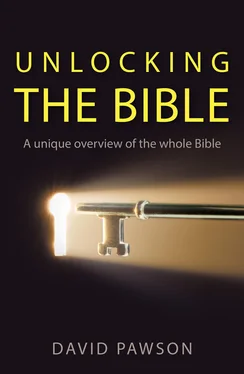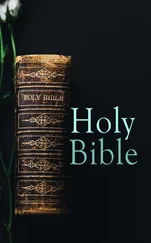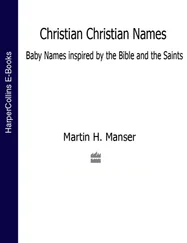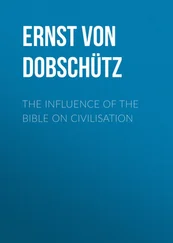There is an interesting footnote to the story of Babel. Among the people scattered at Babel were a group who climbed over the mountains to the east and eventually settled when they reached the sea. They became the great nation of China. Chinese culture goes right back to that day. They left the area of Babel before the Cuneiform alphabet replaced the picture language of ancient Egypt. All languages were pictorial right up to the time of Babel. The language they took to China they put down in picture form. The amazing thing is that it is possible to reconstruct the story from Genesis 1 to 11 by looking at the symbols which the Chinese use to describe different words.
The Chinese word for ‘create’, for example, is made up of the pictures for mud, life and someone walking. Their word for ‘devil’ is made up of a man, a garden, and the picture for secret. So the devil is a secret person in the garden. Their word for ‘tempter’ is made up of the word for ‘devil’ plus two trees and the picture for cover. Their word for ‘boat’ is made up of container, mouth and eight, so a boat in the Chinese language is a vessel for eight people, as was Noah’s ark.
We can reconstruct the whole of Genesis 1–11 from the picture language in China. When these people first arrived in China, therefore, they believed in one God, the maker of heaven and earth. It was only after Confucius and Buddha that they got involved in idolatry. The Chinese language is an independent confirmation from outside the Bible that these things happened and were carried in the memories of people scattered at Babel, who then settled in China.
JUSTICE AND MERCY
Two themes predominate in these chapters: from the Fall of Adam onwards we see both human pride and God’s response of justice and mercy. He showed justice to Adam and Eve in banishing them from the garden and telling them that they would one day die, but also mercy in providing a covering for them. He showed justice to Cain in condemning him to be a wanderer, but mercy in placing a mark on him so that no one would kill him. He punished the generation of Enoch (although not Enoch himself), but we see his mercy in saving Noah and his family and his patience in waiting, as he gave Methuselah such a long life. What does the rest of Genesis tell us about God? Let us look further, and see what kind of relationship he had with his people through the generations and events which followed.
The sovereign God
There is a double thread running right through the portrayal of God in the Old Testament which requires an explanation. It is a juxtaposition which only becomes clear through reading the book of Genesis.
The God of the whole universe
On the one side the Old Testament claims that the God of the Jews is the God of the whole universe. In those days every nation had its own god, whether it was Baal, or Isis, or Molech, and religion was strictly national. All wars were religious wars, between nations with different gods. Israel’s God (Yahweh) was considered by other nations to be just the national god of Israel. But Israel herself claimed that her God was ‘the God above all Gods’. Indeed, the Israelites went even further, asserting that their God was the only God who really existed. He had made the entire universe. All the other gods were figments of human imagination. These claims were, of course, extremely offensive to the other nations. You can read of them in Isaiah 40, in the book of Job and in many of the psalms.
The God of the Jews
The other side of the picture painted in the Old Testament is that the God of the whole universe is the God of the Jews. They were claiming that the creator of everything had a very personal and intimate relationship with them, one little group of people on earth. In fact, they were claiming that he had identified himself with one family; with a grandfather, a father and a son. According to them, the God of the entire universe called himself ‘the God of Abraham, Isaac and Jacob’. It was an incredible claim.
God’s plan
This astonishing two-fold truth that the God of the Jews is the God of the universe, and the God of the universe is especially the God of the Jews, is explained for us in Genesis – indeed, without this book we would have no ground for believing it.
The book of Genesis covers more time than the whole of the rest of the Bible put together. The beginning of Exodus to the end of Revelation covers around 1,500 years, a millennium and a half, whereas Genesis alone covers the entire history of the world from its beginning right through to the time of Joseph. So when we read the Bible we must realize that time has been compressed, and that Genesis covers many centuries compared to the rest of the Bible.
This time compression is also true within Genesis itself. We have noted already that Chapters 1–11 form a quarter of the book and yet cover a very long period and a considerable breadth of people and nations. The second ‘part’ of Genesis, Chapters 12–50, is a much longer section taking up three-quarters of the book, yet it only covers a relatively few years and a few people – just one family and only four generations of that family. This seems to be a huge disproportion of space if Genesis is claiming to tell the history of our whole world.
It is clear, however, that this difference in proportions is quite deliberate. There is a deliberate move away from looking at the whole world to focus in on one particular family as if they were the most important family ever to have lived. In one sense they were, for they were part of that very special line from Seth of people who called on the name of the Lord. As far as God was concerned, the people who called on him were more important than anyone else because they were the people through whom he could fulfil his plans and purposes.
This approach serves to remind us that the Bible is not God’s answers to our problems; it is God’s answer to God’s problem. God’s problem was: ‘What do you do with a race that doesn’t want to know you or love you or obey you?’ One solution was to wipe them out and start again. He tried that, but even the father of the righteous remnant saved through the Flood (Noah) got drunk and exposed himself, demonstrating that human nature had not changed. But God did not give up. He was concerned about human beings; he had created them. He had one son already and he enjoyed that son so much he wanted a bigger family, so he was not about to give up on the problem of mankind.
His solution began with Abraham. Philosophers call this ‘the scandal of particularity’, suggesting that God was being unfair in choosing to deal only with the Jews. Why does he not save the Chinese through the Chinese, the Americans through the Americans, the British through the British? God’s rescue programme is an offence to us – summed up by the poet William Norman Ewer:
How odd
Of God
To choose
The Jews.
Then Cecil Browne decided to add a second verse in reply:
But not so odd
As those who choose
A Jewish God,
But spurn the Jews.
We might explain God’s approach by considering a simple domestic situation. A father decides to bring home sweets for his three children. He could bring three bars of chocolate and give them one each, or he could bring a bag of sweets, give it to one child and tell them to share. The first option is the most peaceful one, but treats the children as unconnected individuals. If he wants to create a family then the second approach would teach them more.
God’s way, therefore, was to start a plan whereby his son would come as a Jew. He told the Jews to share his blessings with everyone else, instead of dealing with each nation separately. He chose the Jews, with the intention that all other peoples might know his blessing through them.
Читать дальше











